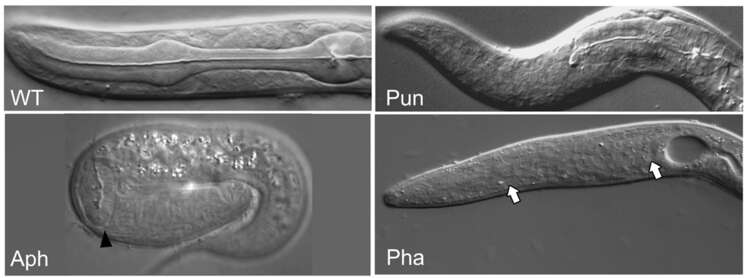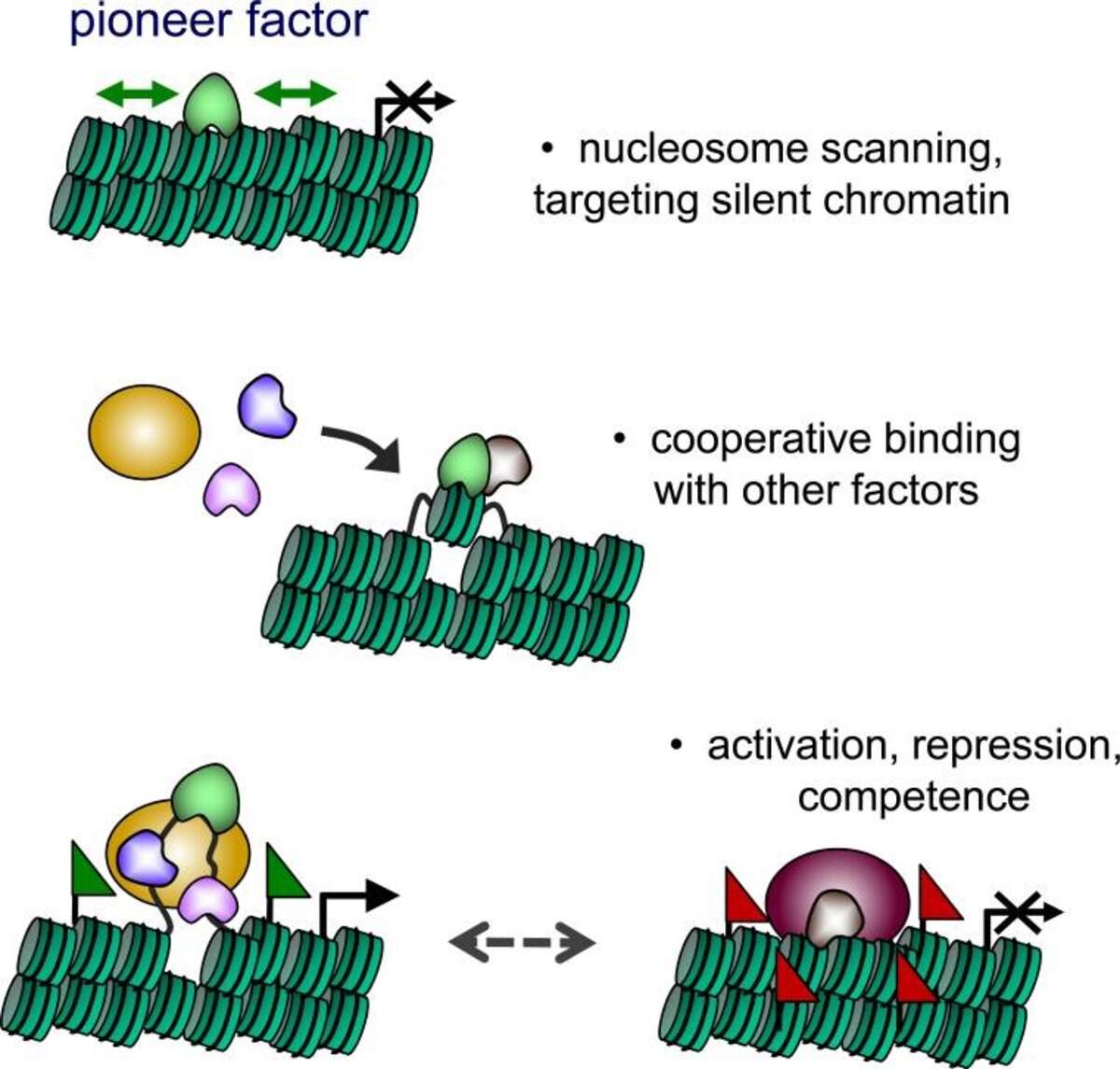Pioneers
The transcription factors that specific cell fates
Our body consists of 30 trillion cells that are organized into organs such as the liver, heart and kidneys. These specialized cells are generated in the embryo by a combination of molecular processes, some of which are hard-wired in the embryo and others that respond to environmental conditions.
Early embryonic cells are pluripotent, meaning they can differentiate into any cell type. With time, these cells become restricted in their developmental potential. So-called pioneer transcription factors play an important role in controlling cell identity. We use a simple animal, the nematode Caenorhabditis elegans, to study how pioneer factors dictate the identity of cells in the gut. We use molecular genetics, imaging and genomics to identify the hard-wired pathways that induce these factors and set cell differentiation in motion.
Below shows the C. elegans foregut in a wild-type animal (WT) and in three types of mutants: some affect attachment of the foregut to the tip of the nose (Pun). Some affect specification of subsets of foregut cells (e.g. Aph, which is missing half the foregut). And the most dramatic is Pha, where the entire organ is missing because all cells of the foregut fail to acquire foregut identity. These cells lack the critical transcription factor PHA-4 of the foregut.
We’ve focused on PHA-4, which is a special type of transcription factor: it is a selector gene, which tells cells to acquire foregut (or pharynx) identity. Without pha-4, embryos are Pha. It is also a pioneer transcription factor that ensures foregut promoters are receptive to binding by additional factors for subsequent activation. PHA-4 binds and regulates all genes selectively expressed in the foregut, but it is not sufficient for their activity – just necessary.
Read more:
Zaret, K.S. and S.E. Mango. Pioneer transcription factors, chromatin dynamics and cell fate control. Current Opinion in Genetics & Development, 2016.
Hsu, H.-T., Chen, H.-M., Burger, A. Yang, Z. Y., Zaret, K., Liu, T., Levine, E. and S.E. Mango. Recruitment of RNA Polymerase II by the pioneer transcription factor PHA-4. Science, 2015.
What got us started:
Gaudet and Mango. Regulation of Organogenesis by the Caenorhabditis elegans FoxA Protein PHA-4. Science, 2002.
Mango. The Molecular Basis of Organ Formation: Insights From the C. elegans Foregut .Ann Rev, 2009.
Photo: Leprechaun Canyon, Salt Lake Tribune, Mango lab, Ken Zaret





